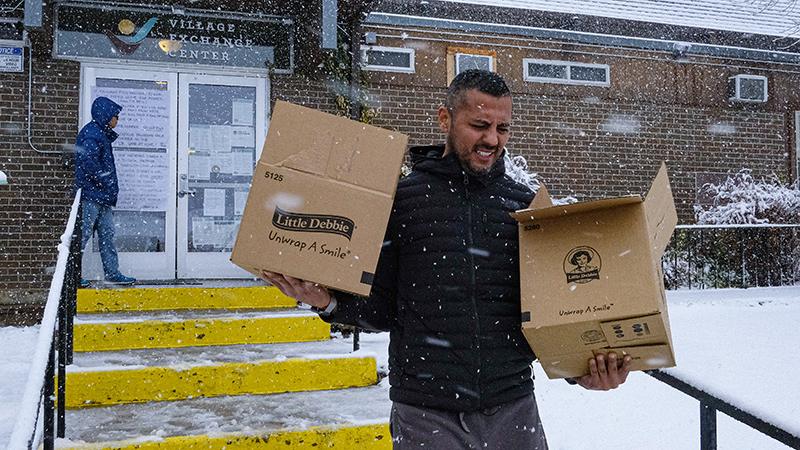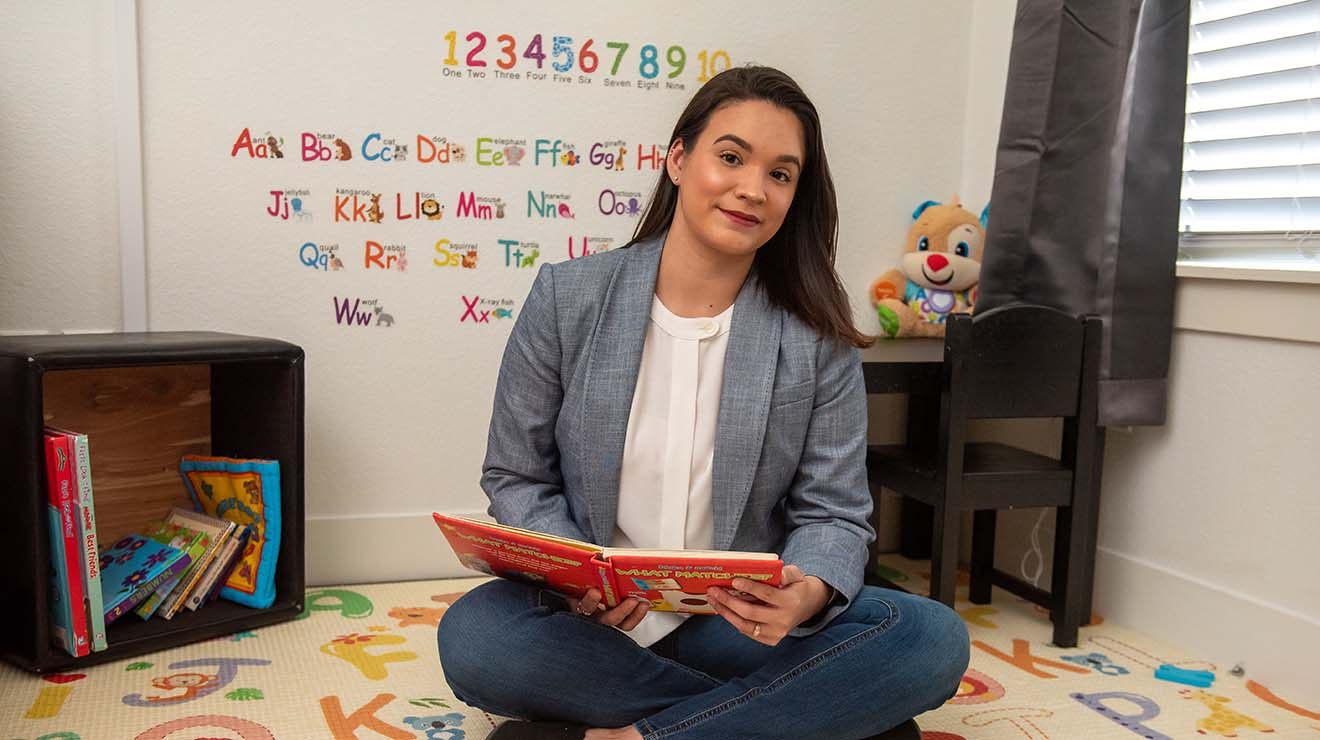The unemployment counters are spinning forward faster than state labor officials can keep up.
The revenue counters are spinning backward faster than state and local treasurers can reassess.
The one-two punch as the impact of the coronavirus shutdown becomes clear is an ominous warning for social service programs, education funding, housing and other community supports aimed at equalizing opportunity across Colorado. State and local tax revenues are plummeting as the economy seizes up, budgeting experts say, while Coloradans and the agencies that support them report an immediate spike in needs usually funded by the government.
Gov. Jared Polis’s March 20 press conference was devoted almost entirely to discussing economic challenges now facing the state. After announcing a new emergency economic advisory panel, headed up by former Denver mayor Federico Peña, Polis asked landlords to hold off on serving eviction notices and allow rent to be paid late.
Christopher Holland, 29, was laid off from a Fort Collins deli this week, as Polis ordered all dine-in restaurants in the state closed for weeks to promote social distancing from COVID-19, as well as theaters, gyms and other gathering spots. Holland had just quit another job when his deli hours increased to full time. His plan—until the layoff—was to pool money with some roommates and finally move out of the crash space in a friend’s home.
“I’m currently looking for any kind of temp job I can find,” Holland said. A music producer (listen here and here), he’s also focusing on that. He’s got no savings, and debts lingering from school tuition. With the state’s online site for unemployment insurance jammed with new applicants, he hasn’t been able to access benefits.
COVID-19 makes this instant recession different from any recent one in memory, said Kim Rueben, director of the State and Local Finance Initiative at the Tax Policy Center, a nonpartisan research center. Federal and state governments must find ways to be far more generous with unemployment cash benefits than in the past, Rueben suggested, because there is no end in sight to quarantines and because there are no comparable jobs to be had.
Besides, Rueben said, the nature of the threat means “we don’t want people out looking for jobs right now.”
The low-wage jobs that immediately imploded are disproportionately filled by people without higher education, immigrants and refugees, and racial and ethnic minorities, all of whom are among the first hit and the last to recover in an economic contraction. In Colorado alone, new unemployment claims are coming in the tens of thousands each day: 20,700 filed claims in three days before and after Polis’s gathering place order, with 10,000 on March 19 alone, clogging the online system.
“Yes, forecasts show this is going to sting a little bit, certainly in the short term,” said Kevin Bommer, executive director of the Colorado Municipal League, a trade and lobbying group for counties, cities and towns. (Bommer is now in self-quarantine, after potentially being exposed to the virus during a trip to Washington D.C. earlier in March.) “And in the long term, depending on how much disruption to employment and how many folks are out of work, these things are going to have a ripple effect that are going to extend through the end of this year” in eroding revenues, he said.
The state legislature’s economist warned COVID-19 shutdowns would cost the state $750 million in revenue from a projected $32 billion state budget in the year beginning July 1—and that was before more economic restrictions were ordered.
In severe contractions, Bommer said, local governments wall off basic services from cuts, such as police and fire departments, public health, water and wastewater. Libraries and recreation centers often see services trimmed; innovations aimed at growth and promoting equity, such as affordable housing or open space access, are simply no longer a priority. At a low point of the Great Recession that began in 2008, Colorado Springs infamously turned off street lights and asked neighbors to mow park space with their own machines.
Nonprofits looked to for filling those voids are quickly strained. The Village Exchange Center in Aurora, which helps all neighbors while targeting support for immigrants and refugees, saw requests for delivered food boxes go from 100 to 140 in one week, said Alejandra Ospina Estefan, operations and community outreach manager.
This week, one of the center’s new customers was a 72-year-old woman with multiple medical conditions who said she had $1 in cash until April 1. With the health emergency’s stay-at-home recommendations, the woman had no relatives or friends to bring her food. Estefan added her to the delivery list.
“Yes, need will go up. I’m worried because we don’t have the supplies to cover for everyone,” Estefan said. “People who have never been here called us, and we just don’t have that amount.”
Maintaining or even bolstering Medicaid spending will be crucial to community health throughout the pandemic, Rueben said. Direct medical cases from the virus could quickly bankrupt people without insurance coverage. And Colorado as a Medicaid expansion state from the 2010 Affordable Care Act (and 2009 state legislation creating a hospital provider fee) gave hundreds of thousands more residents the economic security of basic health insurance, she added.
Neighboring Kansas not only didn’t join Medicaid expansion, but its low-tax, low-budget experiments of the 2010s decimated rural hospitals, Rueben pointed out. “This could leave them in terrible shape right now” during an outbreak, she said.
It’s some benefit that states were relatively flush in recent years and many had built reserve funds, Rueben said. But ambitious new attempts at promoting economic equity through expanded early childhood education, affordable housing or paid maternity leave are now unlikely for quite some time.
“I think that’s all going to need to be ripped up and started over,” Rueben said.
Economists and budget analysts listed government-funded aid that can be most effective for lower-income residents in steep downturns:
- Boosts in unemployment benefits, to stave off evictions and hunger and bolster consumer spending.
- Federal backfilling of state budget deficits to temper the slashing of public programs.
- Expansion of eligibility for food assistance programs such as the Supplemental Nutrition Assistance Program (SNAP) and Special Nutrition Assistance Program for Women, Infants and Children (WIC).
- Small-business loan forgiveness, so that retail and food and beverage operations might hang on through the outbreak and hire back workers on the other side.
Said Rueben: “I’d love to see them not just do what they did last time, but really target it towards people and industries who are really hurting right now.”
Additional reporting by Kristin Jones




